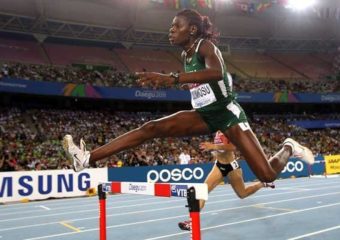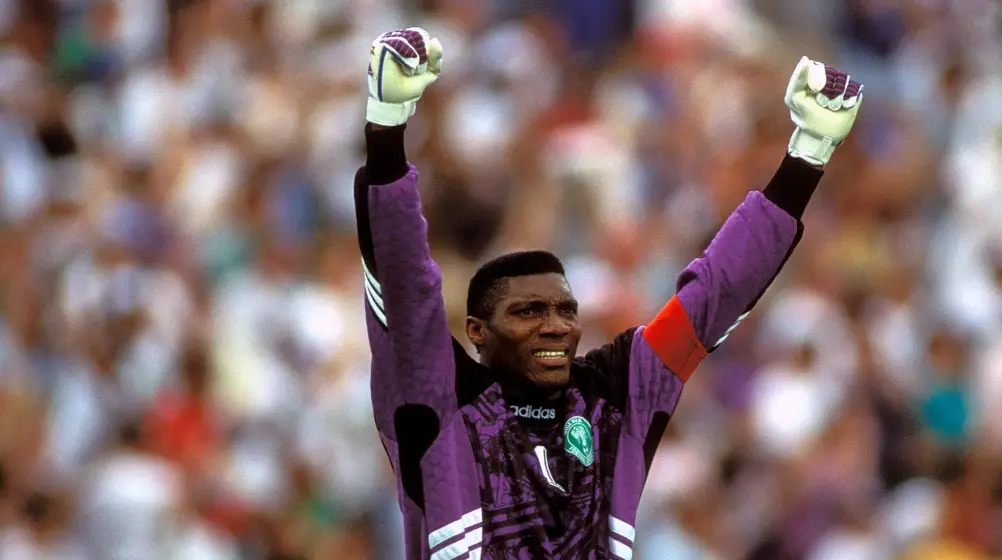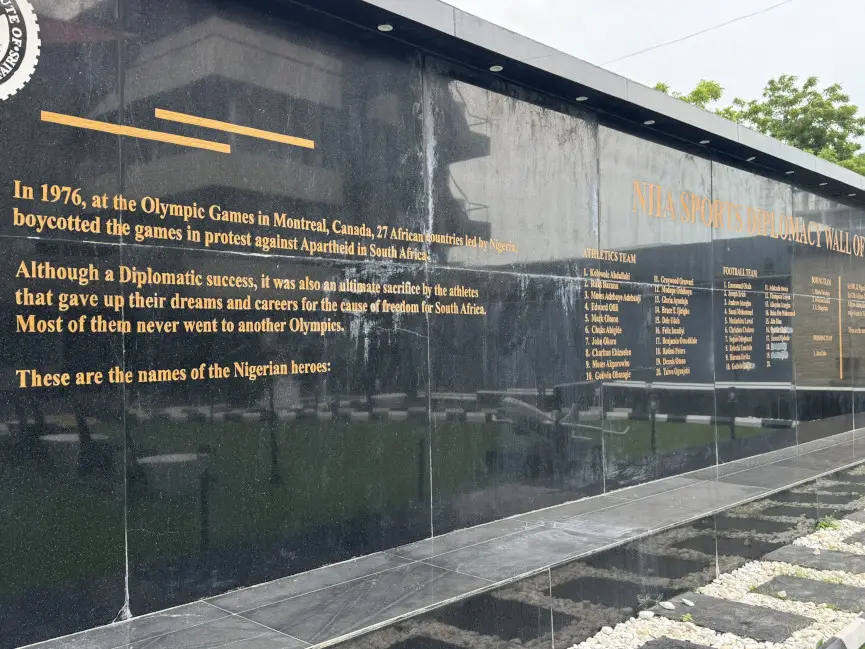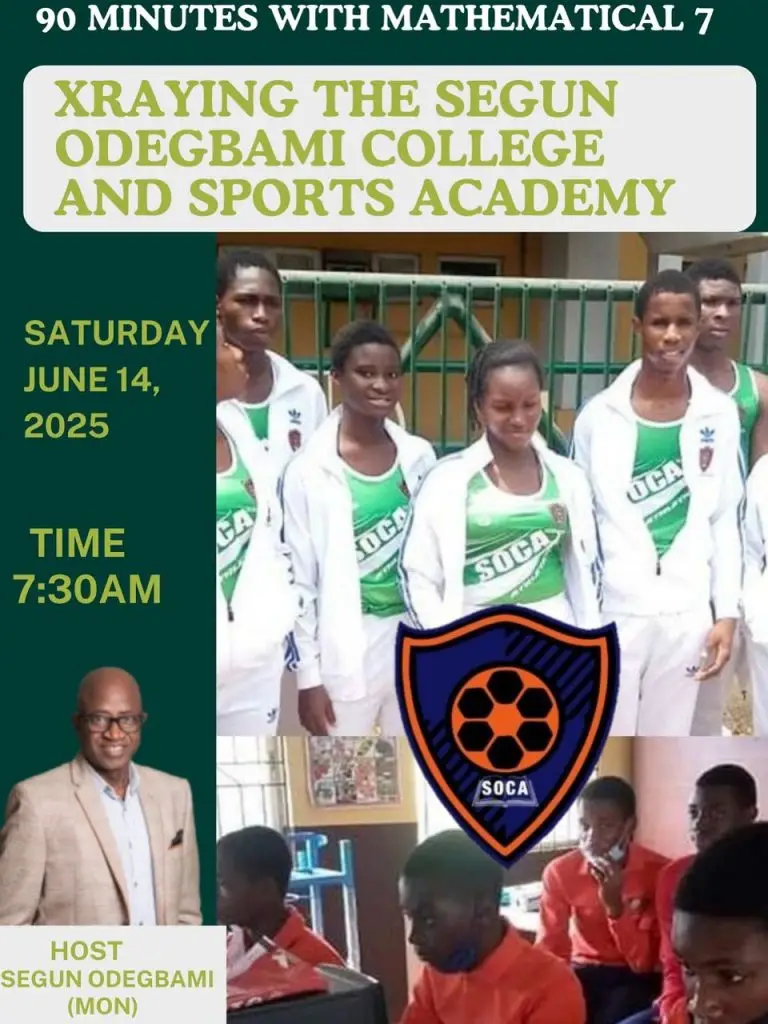In sport, winning is everything, but sometimes to win does not require coming First!
This is a fundamental lesson, not just in sports but in all of life. But it takes sport to provide the perfect model for this fundamental truism.
When the International Olympic Committee wanted to celebrate the Centennial Olympics, 100 years of the biggest non-political movement in the world that promotes global friendships, healthy competition amongst the world’s youths, and peace amongst all nations through its 4 yearly Olympic Games, it needed a simple and very clear demonstration of the authentic spirit and original motivation for the modern games that were resurrected in 1896 by Pierre de Coubertin. The IOC searched through its archives for pictures from its rich collection that best illustrate its essence and spirit.
It finally came up with the recorded footage of Nigeria’s 100 X 4 relay quartet of Beatrice Utondu, Faith Idehen, Christy Opara-Thompson and Mary Onyali at the Barcelona Olympics of 1992
The Nigerian girls ran a great race, coming from 5th position in the last 50 metres of the race to an unclear position at the finish line. Mary Onyali caught up and crossed the line alongside a French competitor. Everyone in the stadium that day had assumed that the French girl had won. Except the Nigerian girls.
The reaction of the two teams, particularly of the Nigerian girls, attracted the attention of the capacity crowd at the Barcelona stadium.
The terraces went silent as the Nigerian quartet stood together across the tracks, arms wrapped around each other’s shoulders, wide-eyed, and staring up at the giant television screen high up in the stands facing the finish-line.
The end of the race was re-run on the screen.
The first two places for Gold and Silver were clear and indisputable – USA and the ‘United Team’ respectively.
The third place was not clear. Both girls had crossed the line at about the same time. There was a slow-motion replay of the last metre. It did not reveal the winner. That was followed, still, by a frame-by-frame photo-finish, as all eyes were glued to the giant screen at the stadium, and on television sets in homes throughout the world.
The stadium waited with bated breath with the Nigerian girls.
Frame by frame, the pictures moved and were frozen at the very end to reveal less than a hair’s breathe of a gap that had opened between Nigeria’s anchor leg, Mary Onyali, and the French athlete.
The Nigerian girls saw this and realised what had just happened. They had just become the first female medalists in Nigeria’s Olympic history! There was an ‘explosion’ inside the Barcelona Stadium. The girls flew into the air and raced around the tracks as the terraces erupted in an orgy of thunderous applause, cheers welcoming the girls as the raced around the stadium for their earned victory lap. Anyone watching the celebrations would never have thought they were not the winner in that race, and that they were in third place.
The drama of the celebration of their ‘feat’ overshadowed the muted celebration for the American girls that had comfortably won the race without much fanfare a few minutes earlier.
Those pictures of the celebration by the Nigerian girls have become one of the most iconic in Olympic history, demonstrating in living colour the spirit of the Olympics and of sport, that winning is beyond only coming ‘first’ in an event.
Although it has become boring to say that ‘everyone is a winner’ in sports, but that is the realistic truth. Everyone is a winner to the best of their ability and their performance.
In 1996, CNN, the global television news channel, captured that particular race and moment in words that have now become eternal, capturing the true essence of sport and Olympism that: “To win, you do not have to come First”.
Last week, the world was reminded once again of that truism in a report that encourages every athlete to always give of their very best and be the best, they can individually be to be considered a winner. Anything other than this would make the world a planet full of frustrated ‘losers’ in sports.
This past week, the question arose: Who is the current holder of the 400 meters hurdles record for women, in Nigeria, and indeed, in Africa? Sprinting over 400 meters is considered a very difficult race. Sprinting through the same distance and jumping over hurdles is a ‘killer’.
It is very likely that only a handful of Nigerians would know the answer. Yet, a Nigerian female athlete holds both the national and African record for that event, one that has remained unbroken since the 2012 Olympic Games in London where it was set.
In 2012, Nigeria had a female athlete that succeeded in lining up as a finalist at the London Olympics. She was one of the best 8 athletes in that event on the planet. It was a first in Nigeria’s athletics history.
The athlete ran the race of her life, setting a new national record and breaking the African record. The celebrations that should have followed her commendable feat were muted by the fact that in that race she came last, in 8th position.
So, uncelebrated, she returned to her US base. Since then she has continued to be used by the US to produce other young athletes for that country.
This week, she was the subject of a news report from the International Olympic Committee. The final results of the 2012 Olympics 400 metres hurdles event for women are being altered. The winner then, has been disqualified, 10 years later, for use of a banned substance.
What that means is that the overall results have to be altered, and the final list of winners adjusted to reflect new documentation of the final results of that race.
A name has moved up that ladder, from 8th place to 7th, and the world is being informed about it. The Nigerian female athlete is now being celebrated as a hero of the 2012 Olympics in the United States where she spends her time coaching young American athletes. Her Nigerian and African records, unbeaten to date, achieved cleanly and without blemish, are being resurrected today.
I congratulate and celebrate another girl from the now famous Our Lady of Apostles College, Ijebu Ode, a school and a town, respectively, that breed a rare stock of homo sapiens that continue to confound the world with their speed and ability in athletics – Falilat Ogunkoya, Fatima Mohammed, Tobi Amusan, and so on.
You can now add to that enviable list the name Ajoke Odumosu.









Latest Comments